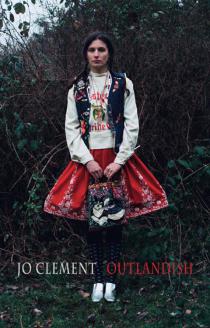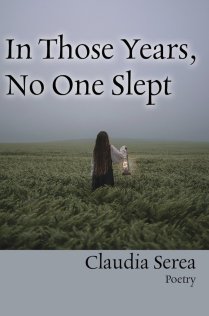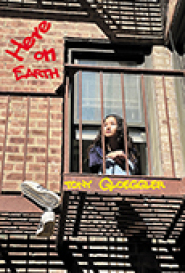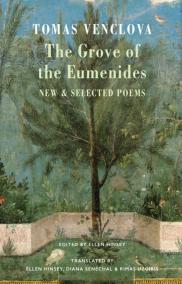
Jo Clement, Outlandish,
Bloodaxe Books, 2022.
ISBN 978-1-78-37-614-1. £10.99. 77pp.
Jo Clement, who identifies as belonging to GRT (Gypsy, Roma, Traveller) heritage, will already be well known to poetry lovers as the editor of the much appreciated iconic poetry magazine Butcher’s Dog, and for two poetry pamphlets. She won a Northern Writers Award in 2012, and most recently Outlandish has been shortlisted for the John Pollard International Poetry Prize from Trinity College Dublin. Her first full length poetry collection finds her in confident voice, whether writing about her intimate experiences of belonging, or exploring the canon of literature, and the ‘othering’ perpetuated by dominant cultures in contemporary society.
A meaty ‘prefatory note’ contextualises the poems and her craft, and asserts her intention to ‘pay deep attention to an archive of in media res images that pre-date photography: wood engravings by the Northumberland-born printmaker Thomas Bewick.’ The ears of Jane Eyre aficionados will prick up at that, but Clement’s point is that these images from a craftsman local to her area represent marginalisation, and insider/outsider narratives. These ideas are juxtaposed throughout her collection, through which the lovingly observed figure of the ‘hoss’, a key symbol of coming of age for GRT youngsters, meanders. ‘The horse is everywhere’, she explains, and the ubiquity of this working animal keeps us moving through the pages, as well as providing striking imagery – ‘Say they ride roughshod over her … Say this: this is house horses are foaled.’ (‘Fetlock’). Recurring images and themes such as the horse is one of the ways in which the sense of community is ensured.
The route taken by the poet, whether or horseback or foot, brings surprising twists and turns. The poems draw on a rich array of images and references, such as her response in ‘Larch’ to Wordsworth’s opposition to the planting of non-native trees; phrases from the older canonical poet are reworked to mark the ‘othering’ of travellers, personified as arboreal interlopers. ‘Manes’ puns on Roman mythology in an exposé of the unacknowledged exploitation of the squandered men and horses in the Second Boer War; the themes here recall Joanna Lumley’s Gurkha Campaign. The ubiquity of exclusion is deftly summed up in a critique of Catholicism, where we are told the priest will ‘not give mass to gobshites.’, and there’s a nice ambiguity to the final line: ‘She knows he’ll not settle.’ (‘Mass’).
But we return again and again to characteristics of the experiences of GTR folk; the intense bonds of family, enduring despite diasporic experiences, bring us back, as the poet herself returns: ‘..it’s no secret I came for the leaves/in this pot. But the real gift was seeing/him for the first time in a coat.’ (‘Tinker’s Tea’). ‘Homecoming’ spreads itself across the pages like the ‘Groundsheet’ which forms the demarcation of a temporary resting space when a family ‘ ‘atch’ (translations of Roma words may be found throughout the collection). ‘Self-Portrait as 100 Travellers’ takes as from ‘Here’ to ‘Gone’ via a string of the insults and invective levelled at travellers, with each new word further erasing identity. These experiences of persecution and injustice are never expressed as self-pity; every page articulates the truth of the making of this remarkable poet:
‘ …Know this.
Diamonds are born of pressure.’
Hannah Stone
To order this book click here
Hannah Stone is the author of Lodestone (Stairwell Books, 2016), Missing Miles (Indigo Dream Publishing, 2017), Swn y Morloi (Maytree Press, 2019) and several collaborations, including Fit to Bust with Pamela Scobie (Runcible Spoon, 2020). She convenes the poets/composers forum for Leeds Lieder, curates Nowt but Verse for Leeds Library, is poet-theologian in Virtual Residence for Leeds Church Institute and editor of the literary journal Dream Catcher. Contact her on hannahstone14@hotmail.com for readings, workshops or book purchases.
Claudia Serea, In Those Years, No One Slept, Broadstone Books, 2023.
ISBN: 978-1-956782-31-8. $27.50. 116pp.
In the poem, “The door,” Claudia Serea writes, “You’d like to believe nothing happened, / it’s a dream, after all.” But later in the poem she acknowledges the grim truth:
You want to leave your past behind,
shed it like skin,
unzip it
and step right out.
But you can’t.
She’s writing about the horrors
of life behind the Iron Curtain, in Communist Romania, where she grew up, living through the Chernobyl disaster – Ukraine borders Romania to the north – and three years later the bloody end of the
Ceausescu regime, before immigrating to the United States in 1995, at the age of 26. Serea’s grandfather and father (and uncles) had been sentenced to prison in the 1950s for resisting the forced
nationalization of the land. Along with hundreds of thousands of others, they were punished – prison, labor camps – by the Communists. Her grandmother was evicted from her
home. When Serea left, her family stayed behind in
Romania.
In Those Years, No One Slept is divided into four parts, the first two sections – “We’ll Be the Ones Who Burn Slowly” and “We Ate the Ugly Ones” – vividly bringing back those years of despair, and the final two – “Rocks from the Black Sea” and “Arsonist August,” set in contemporary times – in America and back in Romania, under the cloud of history and memory. “The door” is a poem from the third section.
But right away, there’s a surreal
sense of nightmare that pervades the book. The very first poems –
“The man playing with matches” (“trembling lights / with human heads”), “The Clarinet” (“My grandfather and the musicians / played their wind instruments / at the funeral of the century”), “My
grandmother set her ladder against the moon” – all have the sinister atmosphere of nightmares. “In those years, no one slept,” the title poem, depicts a surreal setting in which fugitives cower in a
dark forest, “listening for dogs.” It comes with an epigraph from Francisco Garcia Lorca, the Spanish poet who was assassinated by Nationalist forces in the Spanish Civil War a generation
before.
Nobody suffered more than her father, sentenced to eight years. “When I got back from the gulag, my father says” is a grim picture of his years as a prisoner.
For days, I laid in the
shade,
trying to forget what I’ve seen,
those hands,
those desperate eyes,
those semi-human beings,
so starved,
they risked being shot
for a watermelon rind
picked up from garbage.
I couldn’t tell my mother
why I couldn’t eat.
I just wanted to sleep
without being chased
by German shepherds.
The rest of the poems in the first section enlarge upon the
horror, the separation of families, the hunger, the fear of the Securitate, Ceausescu’s secret police. “The cemetery is full” is a title that says it all.
The poems in the second section are Serea’s own experience in Romania. Born in 1969, she came into a world that was already an authoritarian nightmare, only four years after Ceausescu took control.
“Drawing from memory,” as the title itself suggests, testifies to her bearing witness: “old books stinking of mice, falling apart.” “I remember the smells” likewise vividly brings back the time, a
dream you can’t escape. “The retouching team is working hard” is a poem about the authoritarian’s impulse to reshape the narrative in his favor, altering history to suit his vanity, just as
“Chernobyl days” describes the nightmare of living through a nuclear disaster (“they distributed at school / to each of us, two small white pills / of potassium iodine per day”).
Part three opens with “April in Queens,” signaling a change of scene from Eastern Europe to America, but still the poet is assaulted by memory and nightmare. The poem, “1954” takes place on a metro
bus. The poet is reading Frank O’Hara’s Lunch Poems, and she remembers her father, likewise a poet, a prisoner in a labor camp at the same time that O’Hara was on his lunch break in New
York.
And a rabbit runs from the field in Romania
into a bar in New York City,
foolish enough to believe
it can escape.
Even in his frail old age, her father tells her over phone in “Eastern European dawn,” he’d be
willing to emigrate.
It’s good to have your daughter in America.
I’m his insurance policy against history.
So many things bring the past back with nightmare clarity. “On BBC News: the places where I’ve never been” is one of a handful of poems the poet wrote in collaboration
with the visual artist, Oana Maria Cajal, to protest Russian aggression in Ukraine. “I recognize that road,” she writes, “I recognize that village.”
I know the balconies,
the playground, and the cars,
even though I’ve never been to those cities,
bombed cities that could be my hometown.
The final section is largely set back in Romania, where the poet has returned out of concern for her frail, aging parents. It all comes flooding back. She recognizes “kids with stray dog eyes” in the poem, “Arsonist August,” which ends, “The road home belongs / to those who dare.” Reminders of the past are everywhere. She writes in “A village in Romania”:
Forgetfulness is a village in Romania
by the amnesiac Black Sea
where secret police generals retire
to open B&Bs,
where former snipers and revolutionaries
drink together in a ruined bar.
But it’s her aging parents that really concern Serea, why she has returned. “White on white” is a poignant poem about shaving her father’s face as he lies in a hospital bed.
In Those Years, No One Slept is an overpowering reflection on history and family, tragedies large and small, and also the love that endures even as memory weighs us down.
Charles Rammelkamp
To order this book click here
Charles Rammelkamp is Prose Editor for BrickHouse Books in Baltimore, where he lives, and edits The Potomac, an online literary journal. http://thepotomacjournal.com. His photographs, poetry and fiction have appeared in many literary journals. His latest book is a collection of poems called Mata Hari: Eye of the Day (Apprentice House, Loyola University), and another poetry collection, American Zeitgeist, is forthcoming from Apprentice House.



